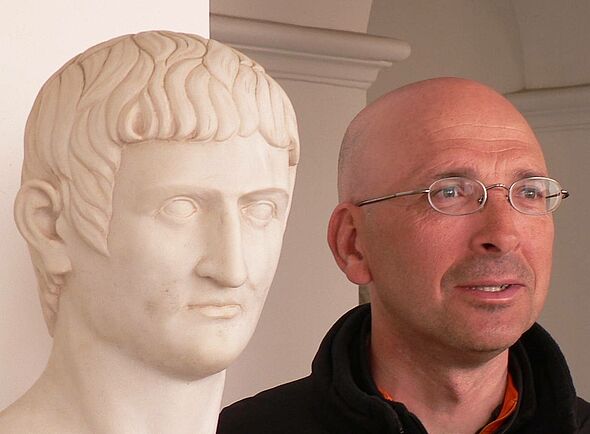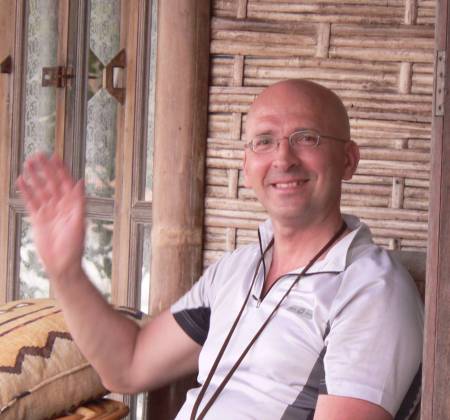Coaching & Counseling
Hamburg, Plön Holstein

|
Egon Molineus M.A. Psychology offers coaching & counseling and psychotherapy in Hamburg Altona-Ottensen and in Plön Holstein.
- Coaching & Counseling or Psychotherapy?
- Psychotherapy treats mental disorders with clinical value on a therapeutic basis.
- Coaching & counseling, on the other hand, support overcoming challenges without clinical value or achieving personal and professional goals, for example in the psychosocial environment of an organization.
- Coaching & counseling can also help prevent the development of disorders with clinical value (health coaching) by teaching necessary skills, overcoming challenges, or breaking destructive vicious cycles. They also have a preventive effect, such as burnout prevention.
- When does coaching & counseling make sense?
- Coaching & counseling are aimed at executives, employees, freelancers, and anyone who wants to develop their personal and professional potential, overcome challenges, and successfully achieve their goals – regardless of their current professional position or life situation. In the coaching and counseling process, clients are supported in taking personal responsibility to solve personal and systemic difficulties, problems, and conflicts in both private and professional environments. Together we work to achieve your goals, which can have a positive impact on your career path.
- How are coaching & counseling structured?
- Coaching & counseling are based on professional communication and are:
- Problem-solving oriented
- Goal-oriented
- Change-oriented, particularly regarding perspectives and behavioral patterns
- Experience-oriented, with focus on self-experience
- Resource-oriented, to mobilize self-resources
- Action-oriented
- Success-oriented
- Growth-oriented
- Which areas of psychology are applied in coaching & counseling? In coaching & counseling, approaches from various psychological disciplines are employed, including learning psychology (behavioral and cognitive psychology), depth psychology, humanistic psychology, systemic psychology, and clinical hypnosis. These methods support the achievement of individual goals and strategies within the framework of coaching & counseling.
- What is important in coaching & counseling?
- Structural quality: A clear and transparent organization of the coaching & counseling process is crucial. This includes clear framework conditions, such as agreeing on goals, defining procedures, and creating a trustworthy framework in which clients feel safe and supported.
- Process quality: The coaching & counseling process should be systematic and well-structured to enable sustainable learning. Proven methods and techniques are used that are individually tailored to the client's needs and goals. This structured approach helps achieve continuous progress.
- Outcome quality: The success of coaching & counseling is measured by whether the defined goals are achieved. It is important that the results are concrete and measurable, so that the client can clearly see how the counseling has positively impacted their personal and professional development.
When Coaching & Counseling?
Examples
In my coaching & counseling, I support clients in taking personal responsibility to overcome personal and professional challenges or achieve their goals. Below you will find some questions for self-reflection:
- Do you want to act preventively to avoid mental or psychosomatic illnesses?
- Do you consider resilience important?
- Do you want to change or improve something in your life?
- Are you still motivated and open to new things?
- Are you pursuing your own goals or those of others?
- Do you question habits and routines?
- Do you feel free, flexible, and open to change?
- Do you take responsibility for your life or do you feel like a victim?
- Do you want to improve relationships, professionally or privately?
- Do you need to change or restructure your perspective?
- Do you work with your environment or against it?
- Do you communicate clearly and understandably?
- Have your values changed, and how does that affect your life?
- Do you want to overcome crises, whether in love, work, or life?
- Are you put under psychological pressure that you cannot handle?
- Do you find it difficult to say "no" or stand up for yourself?
- Do you rescue other people at the expense of your own needs?
- Do you use your resources effectively or could you enjoy more? These questions are meant to help you better understand and address your current life situations and challenges.
Coaching & Counseling: Areas of Application

|
Here are some areas where coaching & counseling can be helpful, as well as strategies applied in my practices in Hamburg-Altona-Ottensen and Plön Holstein:
- Life Coaching:
- Support with personal goals: Self-development and work-life balance.
- Work-Life-Balance: Strategies for balancing professional demands and personal well-being.
- Goal clarification and visualization: Clarification of goals using behavioral analyses and visualization techniques to develop clear and positive future images.
- Health Coaching:
- Promotion of healthy lifestyle habits: Support with stress reduction and general health.
- Stress management: Development of strategies to reduce stress.
- Resilience training: Building inner strength and resistance to stress and challenges.
- Stress and Burnout Coaching:
- Prevention and management of stress and burnout: Specific strategies for stress management.
- Emotion regulation: Learning techniques to control and manage intense emotions.
- Relationship Coaching:
- Improvement of personal and professional relationships: Support in strengthening interpersonal connections.
- Analysis of social interactions: Examination and processing of transference, projection, countertransference, and defense processes in interpersonal relationships.
- Mental Coaching (Mental Training):
- Strengthening mental resilience: Preparation for challenges.
- Trance and imaginative techniques: Use of trance states and imaginations to activate inner resources.
- Mindfulness Coaching:
- Promotion of mindfulness and presence: Development of a more conscious lifestyle.
- Self-reflection: Engagement with one's own thoughts, feelings, and behaviors for personal development.
- Positive Psychology Coaching:
- Focus on strengths and positive qualities: Promotion of well-being and happiness.
- Self-knowledge and self-esteem enhancement: Discovery of one's own potential and building healthy self-esteem.
- Motivation Coaching:
- Increase of inner motivation: Support in goal pursuit and achievement of personal success.
- Self-management: Promotion of self-discipline and personal responsibility in daily life.
- Communication Coaching:
- Improvement of communication skills: Efficient speaking and listening.
- Communication training: Improvement of interpersonal communication for clearer and more effective conversations.
- Conflict Coaching:
- Resolution of conflicts: Strategies for de-escalation and conflict management in various life areas.
- Conflict management: Development of skills for effective management of conflicts in private and professional contexts.
- Time Management Coaching:
- Effective use and planning of time resources: Development of time management strategies.
- Reevaluation and reframing: Changing perspectives and thought patterns to promote positive attitudes.
- Transition Coaching:
- Support during life transitions: Assistance with retirement, career change, or relocation to another country.
- Crisis management: Support in acute crisis situations to find new perspectives and solutions.
- Resilience Coaching:
- Strengthening of resilience: Building the ability to overcome setbacks and be resilient in the face of challenges.
- Training of self-perception and perception of others: Improvement of one's own perception and understanding of others' perception.
- Coping with Dependencies and Addictive Behavior:
- Overcoming addiction problems: Support in managing dependency structures.
- Management of Social Competencies:
- Promotion of social skills: Strengthening of skills for better social interaction and communication.
- Problem-Solving and Decision-Making Training:
- Development of effective strategies: Support in overcoming challenges and making confident decisions.
- Self-Experience in Groups:
- Deepening self-awareness: Reflection in the safe framework of a self-experience group.
- Assertiveness training: Learning techniques for assertiveness and boundary-setting: Strengthening self-confidence and managing feelings of shame.
- Scenic Representation through Sculptures: Visualization and processing of problems: Use of sculptures to address current limitations and challenges.
- Trance and Imaginative Techniques: Use of trance states and imaginations: Activation of inner resources and support of search processes. Areas of counseling that go beyond coaching:
- Clarification of roles and relationship dynamics: Support in clarifying personal and interpersonal relationships, e.g., in family or partnership contexts.
- Self-worth and self-acceptance: Support in building healthy self-esteem and self-acceptance.
- Identity and meaning-finding: Guidance in exploring and clarifying identity questions and the search for life's meaning.
- Emotional support during acute stress: Assistance in emotionally stressful situations without therapeutic claim.
- Relationship counseling: Support with partnership challenges without entering the realm of couples therapy. These areas and strategies offer diverse approaches to overcome individual challenges and achieve personal and professional goals.
Professional Coaching + Psychotherapy
EXPERIENCE REPORT: OVERCOMING DEPRESSION
In my work environment, there were fundamental changes that made me very insecure and anxious. I reacted with strong emotional distress and lost sight of the facts. I fell into a state of inner exhaustion and felt hardly any joy in life anymore. I became depressed.
After about a year of psychotherapeutic treatment, I managed to work my way far out of this depression. What had essentially contributed to this?
The quick and uncomplicated appointment scheduling with Mr. Molineus gave me support like a railing on a swaying bridge. I could pause with him and consider my next steps with his support. His coaching was helpful in carefully putting one foot in front of the other without increasing the swaying. And with the certainty of always having the railing within reach, I decided that I absolutely wanted to reach the other end of the bridge.
I experienced the clarification process with the health insurance company as a great challenge, as they behaved unlawfully regarding cost reimbursement. I would have been satisfied with the standard insurance rate; it seemed too troublesome to argue about it. However, Mr. Molineus encouraged me to assert myself. When a conversation with the health insurance company led to nothing more than a feeling of humiliation, I sought telephone advice from the Independent Patient Counseling Service. Through the internet, I researched that there is a branch in Hamburg. There I was able to speak personally with a lawyer about my case. Thus strengthened, I formulated my interests much more emphatically to the health insurance company and was successful. This gave me back a piece of self-confidence.
And through this new gain in confidence, my attitude toward my work changed. I was more interested and open again. And I received positive feedback and the feeling of being part of the team.
The work with Mr. Molineus, combined with the group experience, was and is the strongest factor in the change process for me.
Three others have proven to be good companions for me:
Despite my unstable condition, I consistently stayed with a hobby. There too, I sense change; the more I regain access to myself, the more open and stable my voice becomes. And I found real enjoyment in making music with others in the context of workshops;
I was fortunate to have made contact with a group of people who deal with a different attitude toward life than my accustomed one. I find this very enriching because there too I receive many impulses to change my perspective;
I suffered from painful symptoms caused by many areas of tension in my body. I found a treatment practice where I am comprehensively cared for. Today I feel much more resilient and powerful health-wise.
This description represents my very personal process, which I have not yet fully completed at this point when I am writing this report. But I am certain that I will soon reach my goal, namely the end of the bridge. And have solid ground under my feet again.
I very much hope that my report can provide inspiration and confidence for others who, like me, have been thrown off balance.
Contact for Appointment Scheduling
The 2 Practice Addresses:
Rural Practice and Postal Address for All Correspondence: Egon Molineus , An den Tannen 39 , 24321 Hohwacht (Ostsee)
City Practice: Practice for Psychotherapy & Coaching, Egon Molineus M.A. Psychology Bahrenfelder Str. 169, 5th Floor, 22765 Hamburg









